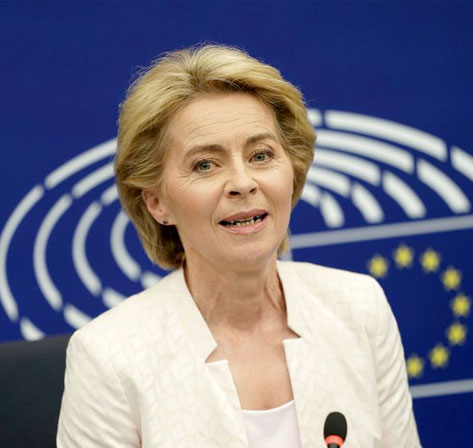September 2023
EU Update: A Reshuffled European Commission for Ursula Von der Leyen’s Last Year
Region: Europe
Author: Alban Sadorge-Hardy
Changes at the European Commission are relatively rare but three prominent European Commissioners have left the institutions in recent months
Under the leadership of Ursula von der Leyen, the European Commission has entered its final year of the current legislative term with a slightly reshuffled team. Unlike national-level reshuffles, changes at the European Commission are relatively rare but three prominent European Commissioners have left the institutions in recent months. Their departure has subtly altered the political dynamics within the Commission and carries implications for the upcoming European elections in June 2024.
Prominent departures
The departure of three emblematic European Commissioners in a short span of time has attracted significant attention. In May 2023, Mariya Gabriel from Bulgaria, a member of the European People’s Party (EPP), left her position as European Commissioner for Innovation and Research, Culture, Education, and Youth. She took on the role of Bulgaria’s Deputy Prime Minister and Minister of Foreign Affairs and is expected to become Prime Minister in March 2024.
Then, in the last week of August, Frans Timmermans from the Netherlands, a member of the Socialists and Democrats (S&D), stepped down as the First Executive Vice-President of the European Commission in charge of the Green Deal. He made this move to lead the left-wing list in the Dutch general election in November.
Last but not least, in the beginning of September, Margrethe Vestager from Denmark, a member of Renew Europe, took an unpaid leave from her position as Executive Vice-President of the European Commission, responsible for digital issues and Commissioner for Competition. She announced she intended to focus on her candidacy for the presidency of the European Investment Bank (EIB).
Two Fundamental Trends
These departures are evidence of two fundamental trends in the EU. Firstly, they highlight the growing intersection between national and European political landscapes. Gabriel’s and Timmermans’ elevation in their respective home states shows a growing appetite for experienced EU decision-makers at the national level. This hypothetical revolving door could play a positive role if it enhances cooperation between EU and national institutions on public policies and brings the EU closer to its citizens.
Secondly, Vestager’s candidacy for the presidency of the EIB highlights the growing politicization of the institution, traditionally viewed as more technical than political. With the focus on the energy transition, the EIB is gaining visibility and importance among European institutions, particularly in climate finance.
An Altered Political Balance
The redistribution of portfolios following these departures has led to a minor shift in the political balance within the European Commission. Iliana Ivanova (Bulgaria, EPP) is set to become the new Commissioner for Innovation, Research, Culture, Education, and Youth. Wopke Hoekstra (Netherlands, EPP), is set to replace Timmermans, as Commissioner for Climate Action, but his confirmation could be less straightforward, notably owing to some of his controversial remarks about South European states during the COVID-19 pandemic.
Finally, Belgian Justice Commissioner Didier Reynders is slated to take over Vestager’s competition portfolio, while other portfolios are redistributed. However, Vestager’s Executive Vice-President title will not be passed on to anyone and simply lapse. As a result, the centrist group is losing an Executive Vice-President position, potentially giving more prominence to Renew-affiliated French Commissioner Thierry Breton. By contrast, in addition to having his vast portfolio is divided, Timmermans’ Executive Vice-President title will pass on to Maros Sefcovic (Slovakia, S&D) as he takes charge of Green Deal.
Von der Leyen’s Final Year
The key question that arises from this reshuffle is whether it will provide a renewed impetus to the European Commission as it embarks on its final year of the current mandate. Ursula von der Leyen, in her traditional State of the Union address, outlined her priorities for her administration’s final year. She expressed satisfaction with the Commission’s work since 2019, including its response to unexpected crises like the COVID-19 pandemic and the war in Ukraine.
In addition, she announced several initiatives for the coming months. The most prominent of those was the launch of a probe against China for unfair competition in the electric vehicle sector. In the environmental field, she announced the EU would be providing support for industries that are currently decarbonizing and expanding wind power throughout the Union. Von der Leyen also revealed regulatory simplifications intended to benefit small and medium-sized enterprises.
The European Commission embarks on its final year under Von der Leyen with a slightly restructured team. The departures of key Commissioners have reshaped the institution’s political balance and could provide a renewed momentum for the final months of the current term. As the Commission works to address pressing issues and advance its priorities, it remains to be seen how this reshuffle will impact its performance in the run-up to the 2024 European elections.
